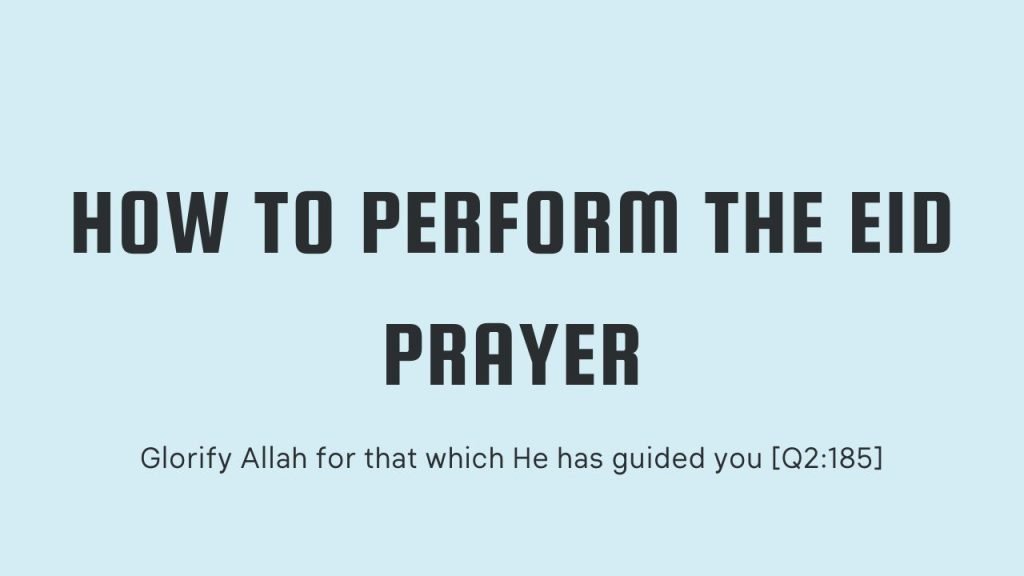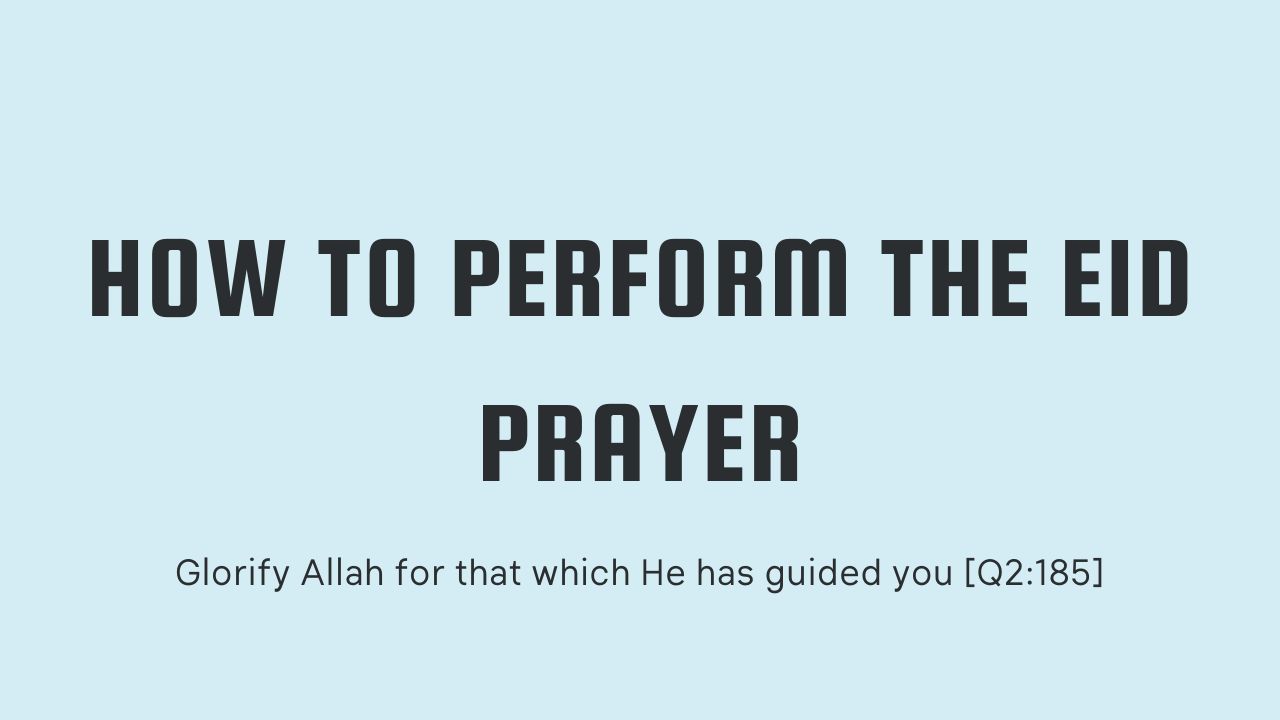
Eid al-Fitr is a time of joy and celebration for Muslims around the world, marking the end of the month of Ramadan. It’s a day filled with prayer, reflection, and community. Here’s a guide on how to perform the Eid prayer, as per the Sunnah (traditions of the Prophet Muhammad, peace be upon him).
Preparing for the Prayer
- Purification and Dressing Up: Begin your day by taking a shower, wearing perfume (for men), and dressing in your finest clothes. This is a day of festivity, and dressing well is part of the Sunnah.
- Eating Before the Prayer: It’s recommended to eat an odd number of dates before heading out for the Eid prayer on Eid al-Fitr. This act symbolises breaking your fast from Ramadan.
- Taking Different Routes: When you go to the prayer ground, take one route, and when returning home, take a different one. This practice allows you to greet and meet more people, spreading joy and blessings.
Performing the Eid Prayer
- The Time: The time for the Eid prayer begins after the sun has risen to the height of a spear (approximately 20 minutes after sunrise) and lasts until just before the Dhuhr prayer (midday).
- The Rak’ahs: The Eid prayer consists of two Rak’ahs but starts with additional Takbirs. In the first Rak’ah, pronounce Takbir al-Ihram followed by six more Takbirs. In the second Rak’ah, do it five times before reciting Al-Fatiha.
- Recitation: After the Takbir, recite Surah Al-Fatiha and another Surah of your choice. It’s recommended to recite loudly, reflecting on the meanings.
- The Sermon: After the prayer, two sermons are delivered, similar to the Friday Khutbah. These sermons include teachings and reminders pertinent to Eid and its significance.
Additional Recommendations
- Takbir: It’s sunnah to recite the Takbir out loud from the evening before Eid, on the way to the prayer and until the beginning of the Eid prayer. The words of Takbir bring remembrance of Allah to this festive occasion.
- Here’s how to pronounce the Takbir during Eid: “Allahu Akbar, Allahu Akbar, La ilaha illa Allah, Allahu Akbar, Allahu Akbar, wa Lillahil Hamd.” This translates to “Allah is the Greatest, Allah is the Greatest, there is no deity but Allah; Allah is the Greatest, Allah is the Greatest, and to Allah belongs all praise.”
- Community and Charity: Eid is a time to connect with the community, share joy, and give generously to those in need. Ensure you’ve paid Zakat al-Fitr before the Eid prayer, as it purifies those who fast from any indecent act or speech and helps the poor and needy.
Eid al-Fitr is more than just a celebration; it’s a reflection of faith, gratitude, and community. By following these steps, you can perform the Eid prayer in a manner that brings you closer to the practices of the Prophet Muhammad (peace be upon him) and the essence of this blessed day. May your Eid be filled with happiness, peace, and spiritual growth.
